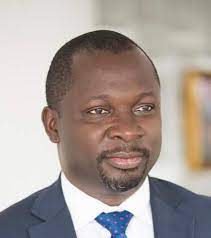The CEO of the Ghana Association of Banks, John Awuah, has dismissed claims that the National Economic Dialogue (NED) was merely a repetition of past discussions without real solutions.
Speaking on Joy FM’s Super Morning Show, he emphasised that the dialogue was different from previous economic discussions. “This National Economic Dialogue is very far from business as usual and very far from offering the same solutions to old problems,” he stated.
He explained that while Ghana’s economic challenges have persisted for decades, the real issue has been a lack of proper execution of proposed solutions.
“Even if some of the solutions have been discussed before, we have not really attempted to implement them. The difference this time will depend on how seriously the managers of the economy take the recommendations,” he noted.
He highlighted the role of the private sector in shaping discussions at the dialogue. “I was deeply involved in the process as part of the private sector group, and solutions that came up, they are not necessarily even rehashed solutions, some are actually thinking without the box solutions. Things we are now dreaming and hoping that the managers of the economy will take these solutions and run with them,” he said.
Mr Awuah also stressed that economic transformation requires patience and sacrifice. “Ghana cannot become the United States overnight, we have to start somewhere. The real question is whether we have the willpower to change course and accept the sacrifices that we must take,” he said.
Using the local rice industry as an example, he explained the importance of long-term economic planning. “If we decide to prioritise locally-produced rice over imported brands, we might not have the best quality immediately. But if we commit to it, future generations could become rice exporters. That is how other developed nations built their economies,” he pointed out.
He further explained that addressing Ghana’s economic challenges are structural and once the structure changes, things will break down, and when things break down, that is where we will be re-digging and rebuilding the foundation.
“The country’s problems are structural and once you change the structure, things may break down before they improve. The real test is whether we are ready to do the difficult work of rebuilding the foundation,” he stated.
According to him, while some progress can be seen in two to three years with aggressive implementation of the solutions as discussed, full economic transformation will take longer.
“If we are deliberate and measured in executing the structural changes discussed at NED, we might see early results within two to three years. However, the real impact will be felt beyond four years,” he said.
Latest Stories
-
Government urges legal counsels to accelerate resolution of Chieftaincy disputes
5 minutes -
Education: GQAA calls for an end to punishing students for using AI
5 minutes -
Unlike NPP, the NDC gov’t is taking heed of my reports on galamsey though the menace continues – Erastus Asare Donkor
8 minutes -
AT CEO urges students to embrace AI at TEDxUCC Career and Skill Summit
11 minutes -
Anlo Youth Council welcomes Blekusu Sea Defence Phase II but warns of looming danger on unprotected coastal stretch
15 minutes -
School under siege – Why cybersecurity must be a top priority in Ghanaian classrooms
18 minutes -
Police arrest Nigerian suspect in armed robbery attack at Avenor
24 minutes -
Volta NDC Chair: Mahama’s fast-track projects signal real change for the region
26 minutes -
Sakumono Ramsar site demolition Phase II met with fierce resistance from residents
26 minutes -
Blekusu Sea Defence Phase II: Council of State rep says project marks turning point for Volta’s coastline
31 minutes -
CARISCA 2025 reimagines Africa’s supply chains for sustainability
39 minutes -
Ejisu MP calls on government to fix bad roads
43 minutes -
Police foil armed robbery attempt in Accra, two suspects killed
58 minutes -
Northern Regional PURC reports impressive achievements in mid-year report
1 hour -
Parliament passes Ghana Medical Trust Fund Bill
1 hour

